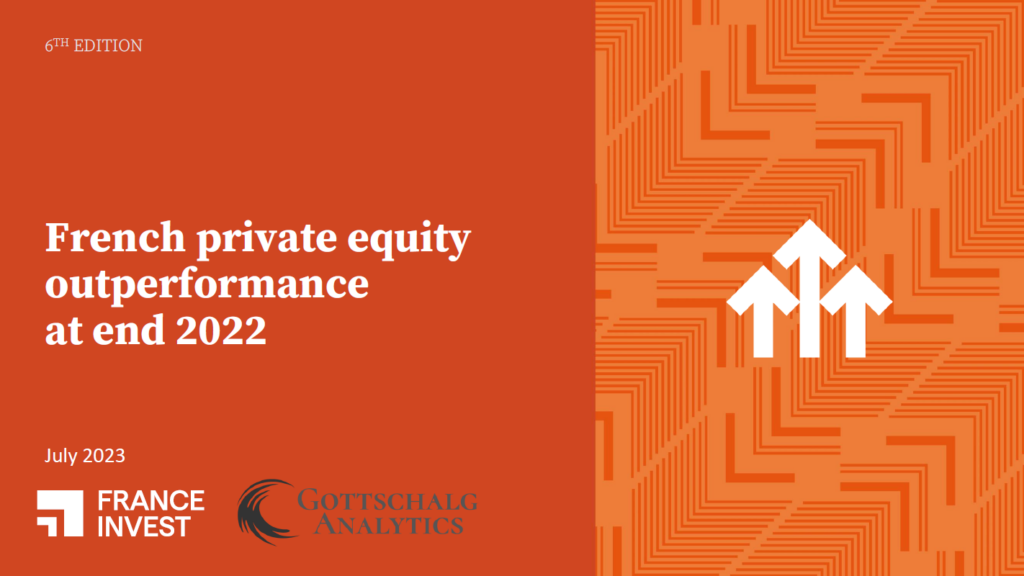French private equity outperformance (Alpha)
05 July 2023
The French private equity outperformance study is carried out by France Invest and Gottschalg Analytics.

6th edition
2022
Methodology
France Invest – Gottschalg Analytics partnership
The goals of the partnership
- Shed a new light on the industry’s performances, considering its specifities.
- Give France Invest’s new benchmark references, including towards main stock markets.
- Promote this asset class to an insider public and offer a better visibility on the performance achieved by the French private equity players to French and foreign LPs.
Organization of the partnership
- France Invest gives Gottschalg Analytics Performance Analytics an anonymous database on the net performance of its members.
- Gottschalg Analytics Performance Analytics calculates the alpha of the asset class compared to a reference market (CAC 40).
- France Invest promotes the study in collaboration with Gottschalg Analytics Performance Analytics.